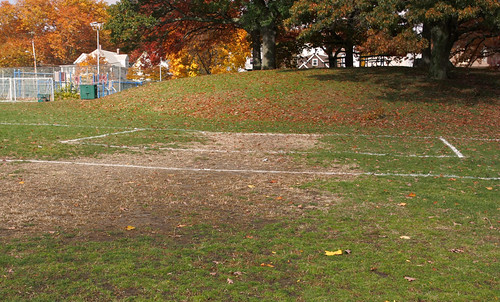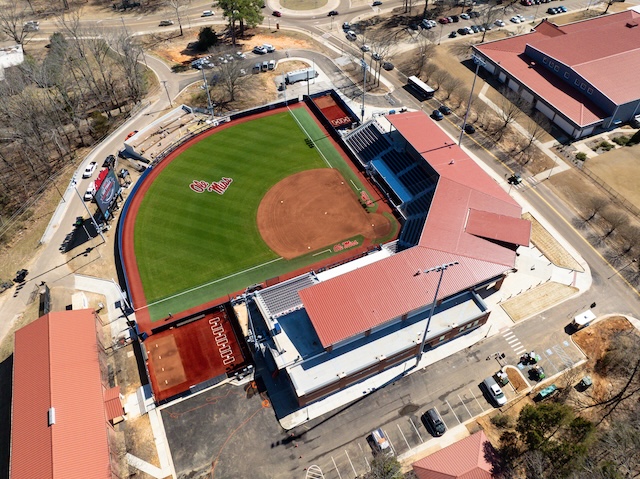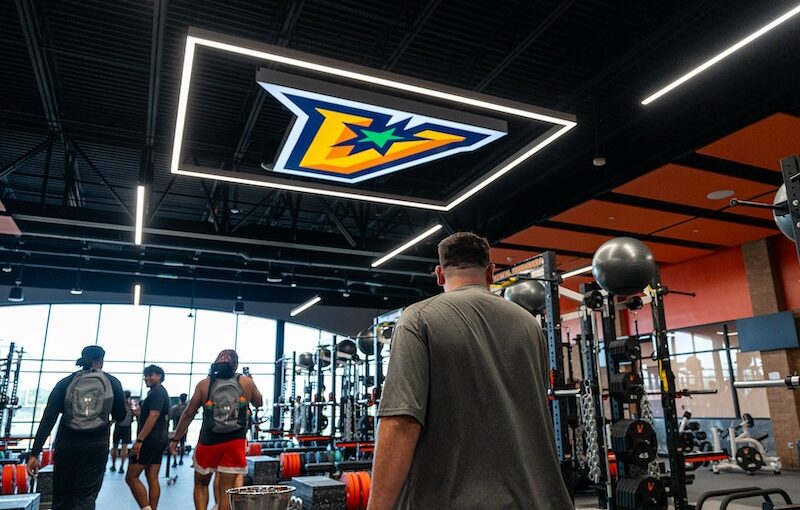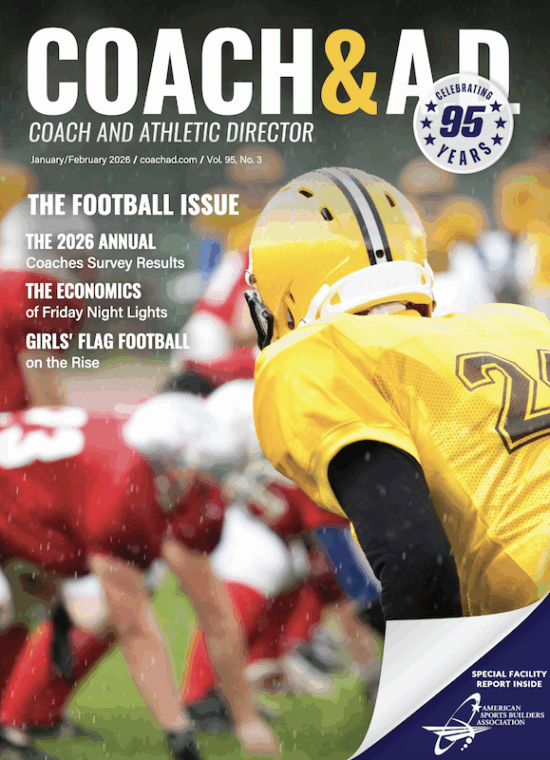Summer soccer field maintenance
Healthy, dense natural grass is a key part of the success of any fall soccer field program. Turfgrass maintenance practices on any athletic field is a year-round series of inputs to maintain and increase the quality of grass. Although all maintenance practices are important, what happens over the summer can spell success or failure for the natural grass soccer field.
Summer starts for the sports field manager when the spring sports season ends. Soccer fields must have goal mouth damage repaired in late May by using sod or plugs of grass depending upon the extent of damage. Practice fields generally have more grass damage resulting in bare spots in the goal mouth area since practice occurs daily. In an effort to spread wear, we ask coaches to move the goals to a different location on the field for practice. Once the grass is repaired, a watering schedule just for the new sod or plugs must be put in place using just enough water to nurse it along but not soaking the entire area. Sometimes, the sports field manager will have these areas hand-watered so the other surrounding turf is not over watered.

Plant growth regulators are another tool we use going into summer. Properly applied plant growth regulators will slow the grass growth rate while still maintaining healthy turf. Plants use less nutrients and water when growth is slowed with growth regulators. We use Primo applied in late May to benefit our summer maintenance practices. In addition to helping the plant conserve energy we save money on fuel and labor by slowing grass growth.
Proper mowing with sharp blades or reels is another key summer maintenance practice for a successful fall soccer field program. Depending upon your species of grass this practice will vary widely. Our cool-season grass of choice for our irrigated soccer fields is Kentucky bluegrass. During spring and fall sports the fields are mowed shorter and more frequently for better ball roll using Toro 6000 Z mowers. During the offseason and summer, we use a Progressive 15’ roller mower puller by a John Deere 4066 tractor to efficiently mow most fields. This combination allows one operator to mow multiple fields very quickly and to travel on the road between locations without needing a truck and trailer. After the spring sports season ends, the mowing height is raised in order to encourage deeper roots. To minimize injury to the grass, we don’t mow athletic fields when temperatures are above 85 degrees. At temperatures above 85, cool-season turf is really just in survival mode and grass damage can occur from mowing or traffic. Typically, mowers will start in the morning and shut down when temps peak 86 or higher.
» Related: Keepings fields in peak condition with the right equipment
Pesticides are sometimes needed for summer soccer field maintenance. Warm night temperatures with high humidity are favorable conditions for turfgrass fungal disease. Healthy grass is fairly disease resistant but occasionally fungicides are used to prevent or cure turf fungus disease. Also the billbug is an insect we target in the summer. These are easily controlled by a contact insecticide sprayed between midnight and 2 AM when the billbugs are on the leaf tips. Soccer fields are not in use during the summer so these applications are easy to schedule. We apply all liquid applications with the Toro 5800D sprayer. This unit utilizes an onboard computer to operate nozzle flow and pressure to very exact conditions.
Regular irrigation is another important input. Balancing irrigation to actual plant water needs is critical since it is easy to overwater grass and create shallow roots and weak plants. To maintain peak irrigation efficiency, it is important to spend time in the summer evaluating performance and coverage and making repairs. Keeping the irrigation systems modernized helps reduce the summer headaches for the irrigation technician. We use central irrigation controls with evapotranspiration replacement so we are only replacing the water the plant actually used or lost to evaporation. Central control systems use input from our weather station and seven unique field variables to calculate exact run times for each irrigation rotor. Even with the best equipment and maintenance, there are still unforeseen issues associated with large acreage irrigation. Because of this, we encourage input from mower operators, coaches, and players about irrigation concerns. Communicating concerns before the field becomes too wet or too dry is always appreciated.
As summer winds down in August we will gradually start lowering our mowing heights to get them ready for fall soccer. This has to be done gradually so as not to harm the grass. Practice fields will get back down to two inches and competition fields slightly lower using Toro 6000 Z mowers. As we layout and paint the fields, we shift fields slightly to keep the wear areas from being in the exact same spot as it was during the previous season.
By having a sound agronomic plan for the summer and carefully executing the plan you can have an outstanding natural grass soccer field to start the fall season even after hot, dry summer weather.
John Peterman, CSFM, is the Sr. Grounds Supervisor for the Blue Valley School District in Overland Park, KS





